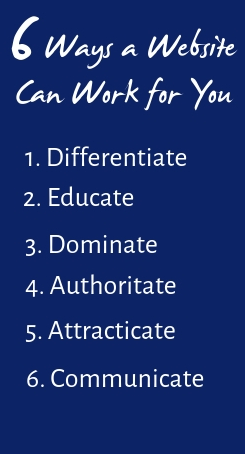It’s been a typical refrain from oilmen for a decade, maybe decades. Anytime you ask them why their company doesn’t have a website, they respond with,
“Oh, we just like to operate under the radar.”

And honestly, when you look at the antagonism oil and gas has had to deal with over this period, you can understand why they have been inclined to feel that way. They’ve been vilified by anti-frac’ing protestors. They’ve seen their compliance workloads escalate in the wake of heavier regulatory burdens. As an industry, they’ve been picked on by lawyers employing sue-and-settle tactics to make money, all under the guise of pushing endangered species listings. They’ve had their facilities surveilled with FLIR cameras and then been declared polluters – often groundlessly.
So they’ve hunkered down and decided, many of them, to stay out of the limelight. Why invite scrutiny, when you feel like you have a public out there that has it in for you?
The truth is that most of the public has no such hostility toward oil and gas. But aside from that, there are other reasons why it might be time to rethink this strategy that oil companies often have, of staying “under the radar.”
A website: your first, best shot
If that line of thinking ever served them in the past, the reasons to think otherwise are becoming more and more compelling. One flaw in the old ways of thinking is that those companies likely were misleading themselves in thinking they were achieving any kinds of safeguards. The truth is, no adversarial individual or agency was ever likely to begin any fault-finding with an oil or gas company by looking at that company’s website.
It was never a case of, “Oh, I see they have a website! I’ve got them now!” Not having a website is no real defense.
If an entity out there was ever going to make trouble for an oil and gas-related business, such trouble likely would start from finding some evidence of actual wrong-doing, and that sort of finding would be out in the field, not in a Google search. If an environmentalist, say, spotted an oil spill, he might then raise a hue-and-cry against the offender. But he wouldn’t be likely to start trouble against any business simply because that business maintains a site. If anything, a website would be that business’s first, best shot at making its true character known.
follow the flock
Truth be told, your peers are abandoning the “fly low” mantra. They are flocking to the digital revolution that has transformed the oilfield as a result of the convergence of two parallel phenomena: the “Great Crew Change” and the Internet of Things (IoT).
The “Great Crew Change” is a phenomenon that is revolutionizing the oilfield. As the industry’s older generation – Baby Boomers, most of them – keep retiring, the field is being left to the younger entrants. Millennials and Gen Z workers are filling the void, and these workers were raised on the internet.
The Internet of Things (IoT), meanwhile, is the web-based network of devices, sensors, and software that have been brought to play as the industry has revolutionized its technology base. The so-called Digital Oilfield is a manifestation of what the IoT is doing in O&G. Increasingly, devices and computers are interconnected in greater and greater breakthroughs of efficiency and optimization.
Into a digital dependence.
These changes have thrust the once-lagging industry into a digital dependence.
And if these reasons are not enough to convince O&G-related businesses to get with the times and get their websites launched or updated, there is the fact that O&G is in a hiring battle with all other industries for qualified help. And it is hard to attract good, tech-savvy help when one’s own company does not deal in 21st century tools.
For all of these reasons, there is a stampede going on, within oil and gas especially, to get websites established and get companies on the digital map with an established and active web presence.

it might be time to ask yourself...
And so, if you are one of those companies who have held onto the “under the radar” mentality, it might be time for you to ask yourself if you really want to be the outlier in that scenario. Do you want to wait another five years and be five years further behind the curve in terms of being found online and in terms of having any kind of name recognition or domain authority? Some of your peers are spending significant amounts of time and money to develop a presence on the web.
The question becomes, do you want to be around in five years?
1. Use Your Website to Differentiate
You know you need to cut through the clutter out there and get your brand recognized for its clear and distinct differences and advantages. Your competition will want to blur the differences, and they’ll want to make themselves sound like they’re just as good, if not better, than you are.
2. Use Your Website to Educate
Put your website to work for you by telling your story—a story no one else can tell. Use your website to tell your company’s story through testimonials, case studies, anecdotes, statistics, successes, and many other angles. Educate your potential work partners in regards to what makes your company uncommon. Cultivate your customers with content on your website (this is called “content marketing”) in order to gain new business and strengthen long term working relationships. (Learn more about the importance of content marketing for oil and gas.)

3. Use Your Website to Dominate
A place to call your own: that’s what your website is on the Internet. When you own the URL (web address), then what you build on it becomes assets that completely belong to you. Unlike the “rented” ground, or rented audiences, you encounter with Facebook or Wix or Weebly, or with audiences that you reach with purchases of traditional media – audiences that are no longer yours when you stop “paying-to-play” – your website is all yours and your efforts there accrue to you.
On your own site, all the messages, images, and information you publish are totally in your control.
Let your site function as the hub of your activity online. Because you have jurisdiction over your site, use that power to your advantage. Set out with a goal to build your website up to where you “own” your niche online within the industry. As we have already noted, businesses in the oil and gas industry have been slow carve out their online real estate. They have been slow to build their online presence. But that is changing rapidly. This is the shift we have seen with companies realizing that the new generation of O&G workers are turning to their devices to discover contacts and resources. It is another advantage you can exploit yourself. You can get in and stake your claim.
4. Use Your Website to Establish Authority
The winners in this new communication playing field are the companies who frequently publish informative and helpful resources on their website. These frequent content updates build your reputation online and give Google more occasions for sharing your website content with online searchers seeking answers to their web queries. (Making progress in this direction is called building “domain authority.”) Plus, you will benefit from other tactics such as “link building.” Link building occurs when you share links (webpage addresses) from your site, putting them out into circulation via messaging you do outside your website, in efforts on social media, or in email marketing, or in news releases. Readers who click on those links are brought back to a specific page (a landing page you created) on your website. Thus, your website increasingly becomes the “hub” of everything you do online.
5. Use Your Website to Attract New Talent
You can cultivate new hires before they ever submit a job application. Use your website to entice the top talent to want to work for you by dedicating a portion of your website to your company culture. Show them your company values. Tell them of your company benefits. Let some of your own team relate their experiences of why they work for you. Then, make it easy for the interested applicants to submit an online application right from a job board built into your website. (Learn more about using your website to attract new job candidates.)
6. Use Your Website to Communicate with Customers
Don’t let dropped communication or lost job tickets hurt your business. Use your website as a centralized location where messages can be tracked and documents can be stored and retrieved in the office or in the field from a device.
Portals – Your company can have a mobile friendly online portal for storage of important documents. Always have the latest version available. Set permissions for different users and control who has access to which documents. Use the portal for documents that need to be shared amongst your team members or shared with customers.
Job Tickets – Add job ticket software to your portal and manage everything from one cloud-based place on your website. Track the job status and even assign team members to team managers for better job monitoring.
Building a website is not a guarantee that you will still be in business in five years. However, not building a website does lay the odds in favor of the other guys who do.
It’s a good choice to invest in building your online presence and using your website as your hub. It is the starting place for the best possible program for jumping out ahead of the pack.
We want to be your partner. Let’s talk about how to get started.









